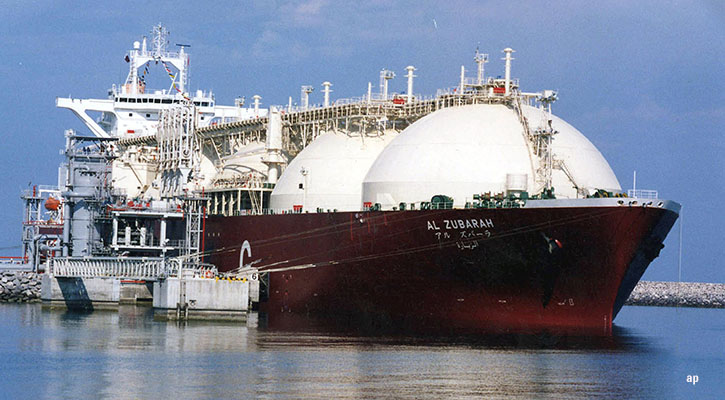Top News of the Week
First-Quarter Data Shows Robust Economic Growth
The first-quarter data released on Thursday showed impressive growth momentum in the Chinese economy. GDP in the first three months grew by a blistering 11.9% year-over-year, although the number was affected by easy comparisons with the year-ago quarter, when China found itself in the teeth of a severe recession. In Q1 2009, the Chinese economy grew 6.1%, the slowest in a decade. The growth pattern of the past year persisted into the first quarter, with fixed asset investment and consumption driving economic expansion, while net export remained a drag on the economy.
Fixed asset investment rose 26.4%, but the pace of expansion was slightly lower than what was recorded in the same period last year, mainly due to more cautious investment in infrastructure projects--probably a prudent decision on the part of the government. The cold weather in the first quarter and the Chinese New Year might also have contributed to the slowdown in such projects. On the other hand, money continued to pile in on real estate projects, as investment in the property sector rose 35% year-over-year. Retail sales remained strong, up 18% year-over-year, as consumers grew more confident about the economy and their earning power.
Trade surplus in the first quarter contracted 77% year-over-year to $14.6 billion, but this was not due to faltering exports. On the contrary, exports recorded a strong rebound in the first three months, up 28.7% from 2009. However, they were outpaced by surging imports in the same period, which jumped by 65%. A recovering economy and a more active export sector led to sharply higher demand for base metals and crude oil. In fact, this trend has resulted in China's first trade deficit in six years this March, as imports exceeded exports by $7.3 billion. The latest trade deficit number may help lessen the pressure on China to revalue its currency, although China is widely expected to move ahead with a gradual and orderly currency appreciation later this year.
Inflation concerns abated somewhat after the release of March retail price data. CPI rose 2.4% in March, a welcome pullback from 2.7% in February. PPI, however, continued to rise, up by 5.9% from 5.4% in the prior month, due to higher metal and oil prices. The mild March retail inflation data, coupled with recent remarks from top officials that the economic picture remains "extremely complex," led many to believe that the government will not raise interest rates any time soon. Sharply lower bank lending in March and in the first quarter also showed that the government is serious about liquidity control in the economy, and that measures implemented earlier this year have started to take effect.
Market Recap
Although robust first-quarter economic data pushed the Shanghai Index above 3,100, growing concerns about tighter credits to the housing sector dampened investor confidence in Chinese property and bank stocks. During the past trading week, the Shanghai Composite Index fell by 0.5% to 3,130 points, while the Shenzhen index fell 1.1% to 12,417.
Macro and Industry Updates
China Introduced Tighter Mortgage Lending Requirements to Clamp down Housing Speculation
To curb speculation in the housing market, China raised minimum mortgage rates and down payment requirements for homebuyers this week. The new policy now requires a minimum 30% down payment for first homes that are larger than 90 square metres, up from 20%. For purchases of non-primary residences, borrowers now need to put down no less than 50% of the house value as down payment, and pay mortgage rates at 110% of the benchmark rate.
The new policy was the latest in a series of tightening measures announced this year to cool the feverish real estate market in China. However, the result of such measures has been muted so far. In March, housing prices in 70 major Chinese cities rose 11.7% year-over-year, the fastest pace since 2005, after rising 10.7% in February and 9.5% in January.
In a new residential housing plan published during the past week, the government vowed to raise land supply in 2010 and increase the construction of affordable housing, in order to meet the housing needs of ordinary consumers that have been frustrated by soaring housing prices.
Bank Lending Under Control in First Quarter
Chinese banks extended CNY 510.7 billion of loans in March, lower than the market expectation of around CNY 700 billion. The March number also came in sharply lower than the previous two months, when CNY 1.4 trillion and CNY 700 billion worth of loans were given out.
In the first quarter, new loans totaled CNY 2.6 trillion, representing 34% of the full-year target of CNY 7.5 trillion. This is roughly in line with the lending guidelines imposed by banking regulators early this year. In the first quarter of 2009, banks raced to lend CNY 4.6 trillion in the first three months and a staggering CNY 9.6 trillion for the whole year. Money supply continued to tighten, as first-quarter M1 growth fell to 29.9% from 35%, and M2 expansion slowed to 22.5% from 25.5% in February.
China Raises Diesel and Gasoline Prices by 4.6% This Week
Effective this Wednesday, average retail prices for diesel and gasoline in China will increase by CNY 320 per metric ton, or about 4.6%, to reflect the recent increase in oil prices on the global market. The announcement came from the National Development and Reform Commission (NDRC), the energy regulator and price setter for China. In a separate announcement, the NDRC raised wholesale jet fuel prices by about 10%.
Contributions from Iris Tan and Zhao Hu.










:quality(80)/cloudfront-us-east-1.images.arcpublishing.com/morningstar/MNPB4CP64NCNLA3MTELE3ISLRY.jpg)












